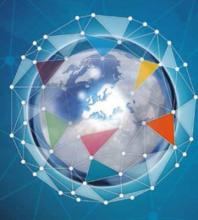Three new projects of Civil Engineering School of UPC-BarcelonaTech have been selected in the latest Marie Skłodowska-Curie Actions (MSCA) call for individual fellowships under the European Horizon 2020 (H2020) research programme. The aims of these projects are to create numerical methods to make more precise simulations; to create systems for assessing the threats of climate change to the seafront and to create a tool for earthquake risk assessment.
The European Commission (EC) has awarded five new MSCA grants to the five projects presented by the Universitat Politècnica de Catalunya (UPC), which will receive a total of €500,000 to provide researchers with training based on excellence and the best development opportunities.
With these actions, the UPC now has a total of 136 projects that have received grants under H2020, to a total of €50.5 million.
The 3 projects are described below:
- New numerical methods for solving physical problems in engineering and applied sciences (Development of a design through analysis methodology based on a coupled isogeometric-maximum entropy approach, ISOMAXENT), coordinated by Professor Marino Arroyo of the Department of Civil and Environmental Engineering. This project will receive €160,000 over two years. It aims to develop a new generation of numerical methods for solving equations in partial derivatives, which model many major physical problems in engineering and applied sciences. The new methods are conceptually original, combining ideas of computational geometry and information theory, and will lead to more flexible and precise simulations.
- Evaluating the impact of climate change on the seafront (Amending the design criteria of urban defence in LECZs through composite-modelling of wave overtopping under climate change scenarios, DURCWAVE), coordinated by Professor Xavier Gironella of the Department of Civil and Environmental Engineering. This project will receive more than €170,000 over two years. The aim of the project is to evaluate the threats posed by climate change for the seafront and buildings near the coast, and to provide a methodology for helping those responsible for estimating the vulnerability of coastal areas.
- Creation of an effective tool for assessing earthquake risk (Keeping and increasing resilience opportunities and sustainability of communities against earthquakes, KaIROS), coordinated by Lluís Pujades of the Department of Civil and Environmental Engineering. This project will receive funding of more than €170,000 over two years to develop and provide new methods and tools for measuring and reducing seismic risk in the world by creating modules based on inventories, assessment, reinforcement and regulations that will form a sound and effective tool for assessing earthquake risk.
Futher information at: Press Room UPC


